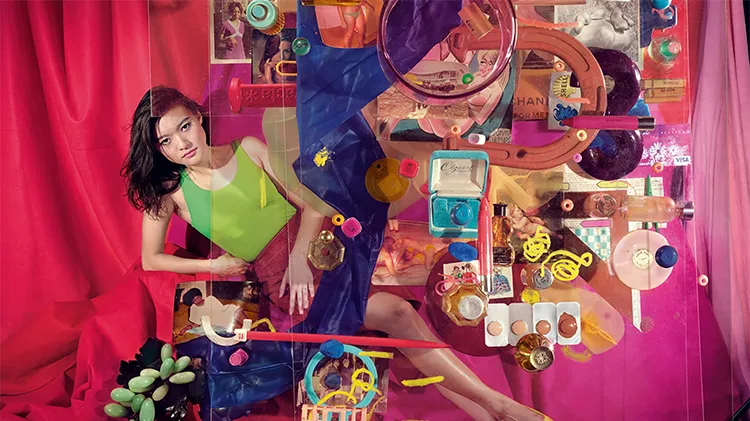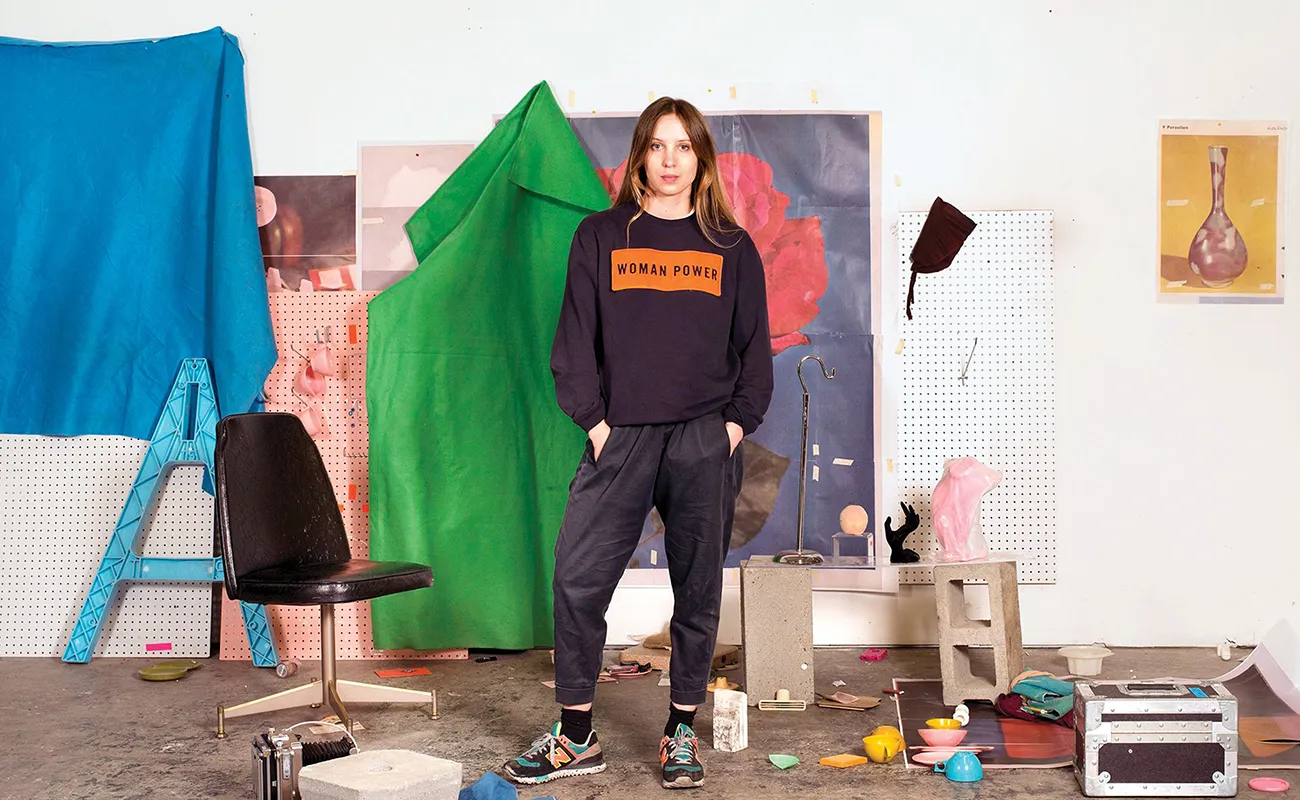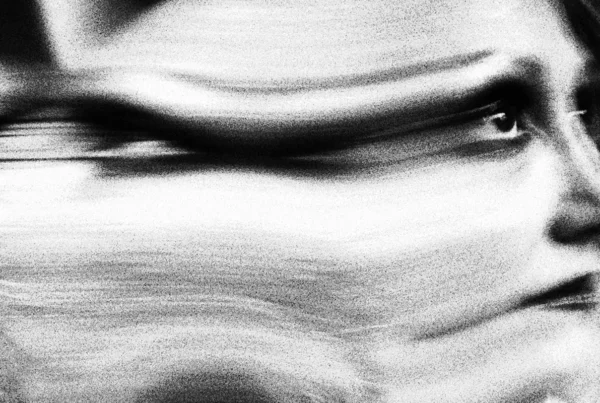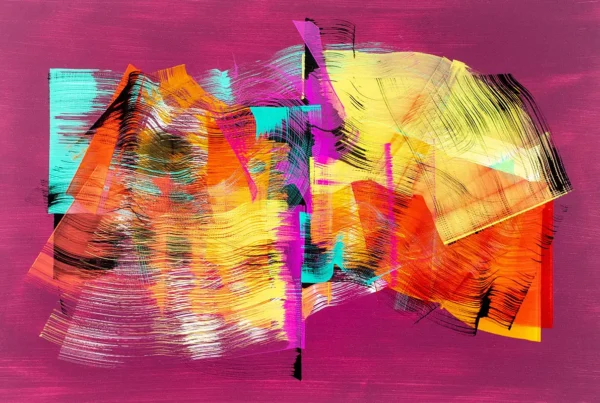Sara Cwynar: Transforming the Familiar into the Thought-Provoking
Sara Cwynar, born in 1985 in Vancouver, Canada, is a contemporary artist whose multi-disciplinary approach spans photography, video, collage, and installation. Currently based in Brooklyn, New York, her work challenges the way we encounter visual and material culture in everyday life. Cwynar draws from her background in literature and graphic design to build narratives that question the pervasive power structures embedded in everyday objects and images. Through intricate visual assemblages, she explores themes of consumerism, beauty, and the representation of women in a media-saturated world.
Having earned a Bachelor of Design from York University and an MFA in Photography from Yale University, Cwynar’s practice is deeply influenced by her academic background. Early in her career, she worked as a freelance graphic designer for The New York Times, honing her skills in visual communication. This blend of design sensibility and critical theory informs much of her work, which often involves re-photographing sculptural constructions or layering archival images. By combining personal archives with imagery from popular culture, she creates works that challenge our perception of reality, blurring the lines between representation and the objects they depict.
Her work is part of prestigious collections, including the Museum of Modern Art in New York, the Guggenheim, and Centre Pompidou in Paris. Cwynar’s artistic journey has been recognized with several awards, including the Sobey Art Award and the Louis Comfort Tiffany Foundation Award. She continues to push the boundaries of contemporary art by interrogating how the images that surround us shape our identities and collective worldviews.
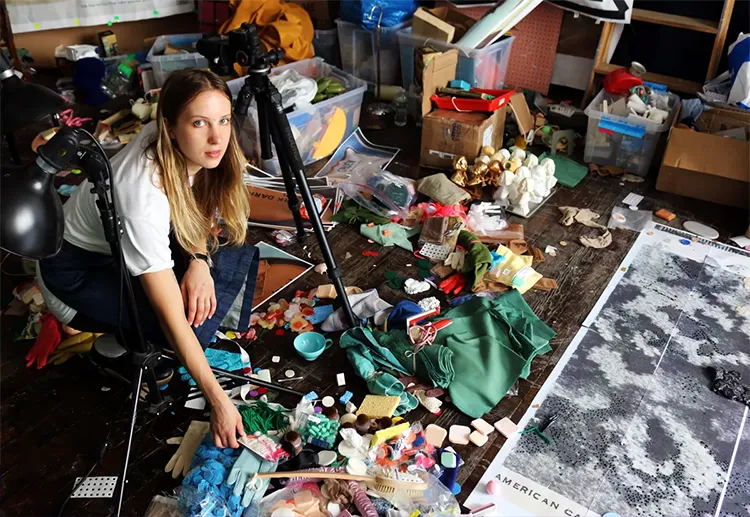
Sara Cwynar: Reimagining the Power of Objects
Cwynar’s artistic vision often centers on the hidden power dynamics of everyday objects. Her unique process begins with collecting items that have a visual or sentimental resonance, whether they are vintage advertising materials, kitsch objects, or personal photos. These objects serve as the building blocks for her photographs, which are more than mere images; they are sculptural reconfigurations that are carefully arranged, photographed, and then re-photographed, creating an intricate dialogue between the physical and the represented.
In her work, Cwynar frequently questions the societal structures that govern our understanding of beauty and value. Her film trilogy—Soft Film (2016), Rose Gold (2017), and Red Film (2018)—addresses these themes by exploring how desire manifests through consumer goods. Each of these films takes a critical look at capitalism’s influence on self-perception, from the allure of luxury items to the pressure of conforming to idealized standards. For example, Rose Gold uses the iconic rose gold iPhone as a symbol of status and technological fetishism, while Red Film bombards the viewer with overlapping voices and images, mimicking the overwhelming sensory experience of modern consumer culture.
Cwynar’s 2021 video installation Glass Life takes this exploration further by critiquing the relentless pressures of capitalism. The work examines how the desire for material goods manipulates personal identity, leading individuals to conform to societal expectations. Through this piece, Cwynar invites viewers to question their relationship with the objects they encounter daily and the systems of control that these objects represent.
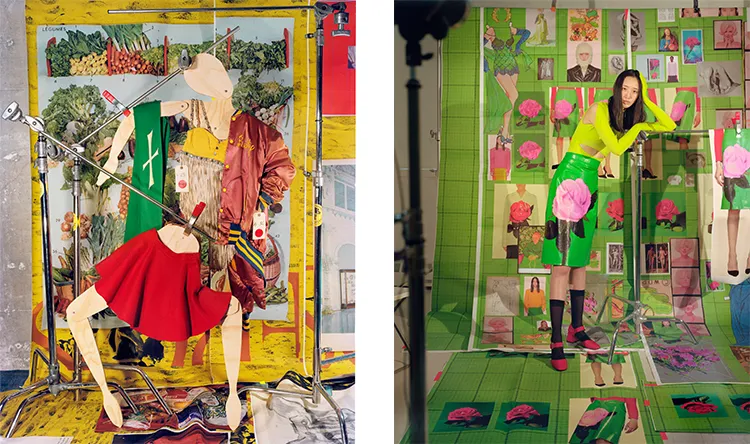
Reconstructing Image and Meaning
Cwynar’s work is also deeply rooted in the idea that images have a life beyond their initial creation. She is fascinated by how images endure, change in value, and accumulate new meanings over time. In her photographic and video works, Cwynar explores the concept of “re-presentation” by layering imagery from various sources—ranging from old advertisements to internet-found photos—into new compositions. This method allows her to challenge the viewer’s understanding of how images shape our perception of reality.
One of her notable projects, Presidential Index (2015), critiques the aesthetics of power and consumption by featuring a series of photographs of Avon Presidential Bust Cologne bottles. These kitsch objects, purchased from eBay, are stripped of their heads and re-photographed in ways that emphasize their absurdity. The project juxtaposes the commodification of political icons with consumer culture’s trivialization of authority figures, forcing viewers to reflect on how historical and commercial value are intertwined.
Cwynar’s ability to dissect and reinterpret visual codes is further demonstrated in her 2014 book Kitsch Encyclopedia. In this publication, she examines the concept of kitsch, exploring how certain images and objects—once deemed valuable or meaningful—become trivialized and lose their cultural significance. By cataloging these images in an encyclopedia format, Cwynar raises questions about what we choose to preserve or discard in the visual culture of the digital age. Through her work, she makes it clear that every image has the potential to be repurposed, its meaning transformed by time and context.
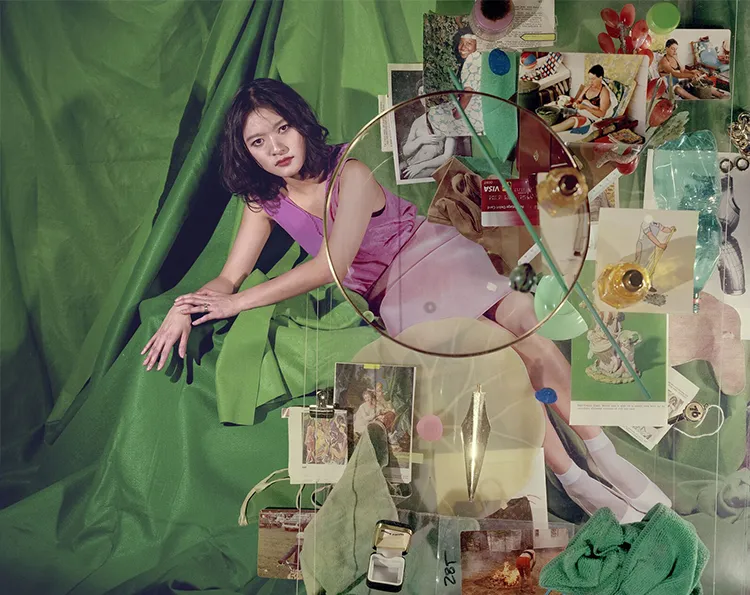
Sara Cwynar: Navigating Capitalism and Feminism through Art
Cwynar’s engagement with feminist themes is a vital aspect of her artistic practice. Her work often reflects on the ways that capitalist structures subtly reinforce misogynistic ideals, particularly in relation to beauty standards and self-image. She challenges these conventions by drawing attention to the ways women are portrayed in consumer culture, urging viewers to look beyond the surface and interrogate the systems at play.
In her short film Soft Film, Cwynar addresses the concept of “soft misogyny” by examining how velvet jewelry boxes—often used to present luxury items—symbolize the subtle ways women are objectified in the marketplace. Through her own presence in the film, paired with a male voiceover that dominates the narration, she highlights the ways in which female voices are often marginalized. The tension between the visual beauty of the objects and the underlying critique of gender inequality creates a powerful commentary on the commodification of women in capitalist societies.
Cwynar’s performances and installations also explore these themes. Her 2021 live performance, Down at the Arcade, commissioned by Performa, transformed a retail space into a site of critical inquiry. By using language and visuals to comment on the transactional nature of consumer spaces, Cwynar connected the dots between feminist critique and the pressures exerted by capitalist structures on women’s bodies and identities. Whether through film, photography, or live art, Cwynar consistently pushes the boundaries of her medium to reveal the often-overlooked ways that power, beauty, and consumerism intersect.
